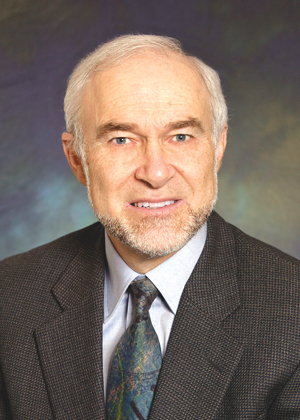While environmentalists are for the most part applauding efforts by the United States to reduce imports of carbon-emitting energy sources, lawyers who facilitate trade and compliance for producers based mostly in Western Canada’s oilsands have significant concerns.

California is spearheading the carbon-reduction efforts as its Air Resources Board introduces the world’s first low-carbon fuel standard that sets a maximum threshold for emissions in either the production or consumption of all fuels.
While oilsands fuels aren’t readily exported to California, more than a dozen other states are eyeing its carbon emission regulation as a model.
The U.S. federal government has also signed into law a commitment to lower emissions generated by the army and the postal service, legislation that observers expect authorities will only broaden over time.
David Young, in an article entitled “Green Fuel - A Threat to the Oil Sands?” warned that if Canada’s oil producers don’t act, they could find themselves shut out of the U.S. market entirely.
“For Canadian oil producers with a view to the American market, the adoption of the Energy Independence and Security Act of 2007 and the introduction of the American clean energy and security act of 2009 are of particular concern,” Young, a partner at Lang Michener LLP and a member of its environment, energy, and emissions trading group, wrote.
“Taken together, these laws will prohibit U.S. federal agencies from purchasing energy with life-cycle greenhouse gas emissions greater than those of conventional oil while setting demanding emission allowances for other U.S. importers and refineries.”
He pointed out, too, that the emissions intensity of crude bitumen derived from the Canadian oilsands “can be up to a third higher than that of conventional oil,” and so it may soon become “almost impossible for Canadian producers to access the U.S. market” due to duties and taxes imposed.
In an interview with Law Times, Young acknowledges the United States is facing somewhat of a dilemma. “On the one hand, there are many initiatives to enhance clean energy,” he says.
“But on the other hand, they see the oilsands as the most significant and secure energy supply available to them.”
Regardless, he says lawyers representing Canadian energy producers will need to keep pace with developments to be able to assist clients with continued market access.
“We have a significant practice in this trade area and are seeing an increase in issues that are affecting our clients,” he says.
He notes that oil bound for the United States represents about 30 per cent of Canada’s total net exports, and while it’s too early to calculate the full impact of the two U.S. laws, even a small decrease could have an impact on our trade.
“My sense is the oil producers and [the government of] Alberta will have to adopt standards that respond to clean-energy standards to some degree,” he says. “This will put pressure on costs of fuel and increase that whole process through technology to improve the efficiency and reduce the carbon intensity.”
The federal clean energy and security act, also known as the Waxman-Markey bill, aims to cut emissions to 20 per cent below 2005 levels by 2020, eventually reaching an 83-per-cent reduction by 2050.
It narrowly passed the U.S. House of Representatives in September and was set to go before the Senate this fall. In the meantime, some senators, including California’s Barbara Boxer, have called for drafting a new version that would be more equitable and therefore have a greater chance of passing.
The U.S. legislation is also based largely on an emissions cap-and-trade program, which in Canada is just in its infancy.
Some lawyers, however, say such restrictions would violate the North American Free Trade Agreement or rules set out under the World Trade Organization.
NAFTA provides that companies and products from Canada, the United States, and Mexico are not discriminated against on the basis of nationality or origin in intercontinental trading.
When California passed its carbon limits last spring, Simon Potter, a partner at McCarthy Tétrault LLP, told reporters the legislation violated rules under both trade agreements.
“This is California deciding they are going to treat oil differently depending on . . . where it comes from. It’s an obvious violation of the requirement for national treatment,” he said.
“To the extent that these measures make oil from one part of the world that they consider dirty more expensive than identical oil from another part of the world they consider clean, they’ve got a discriminatory treatment issue.”
Young agrees there could be a NAFTA argument against the restrictions if, or when, U.S. states adopt them more widely.
He says the key to alleging the legislation discriminates against Canadian oil producers would be to successfully argue that oilsands bitumen is indeed similar to conventional oil.
But that might not be possible, Young warns.
The geological composition of bitumen produced by Western Canada’s oilsands and the production process for refining it are different from conventional oil. As a result, opposing the laws may prove difficult.
“The whole story hasn’t played out because legislation hasn’t yet come down so we don’t know how it will have an impact,” Young says. “But we may face a situation where the tarsands will be clearly in an inferior position” in terms of meeting the requirements to export to the United States in the future.

 California is spearheading the carbon-reduction efforts as its Air Resources Board introduces the world’s first low-carbon fuel standard that sets a maximum threshold for emissions in either the production or consumption of all fuels.
California is spearheading the carbon-reduction efforts as its Air Resources Board introduces the world’s first low-carbon fuel standard that sets a maximum threshold for emissions in either the production or consumption of all fuels.